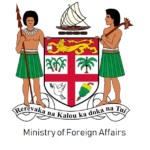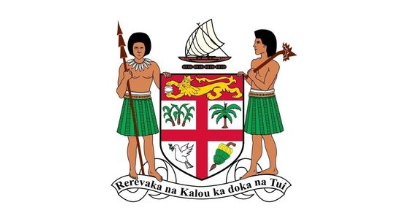
Prime Minister Voreqe Bainimarama’s Speech at the Climate Vulnerable Forum (CVF) Leaders Event
01/10/2020
PM Bainimarama’s Speech at the Fiji-50 Song Launch
05/10/2020Published On: 04/10/2020
Mr. President;
Excellencies;
All Protocol Observed.
The Pacific Small Island Developing States (PSIDS)—the Federated States of Micronesia, Fiji, Kiribati, Nauru, Palau, Papua New Guinea, Republic of Marshall Islands, Samoa, Solomon Islands, Tonga, Tuvalu and Vanuatu—have the honour to present this Statement in commemoration and promotion of the International Day against Nuclear Explosions. We align this statement with the statement submitted by the Permanent Mission of Tuvalu on behalf of the Pacific Islands Forum.
We extend our sincere appreciation to the President of the 74th session of the United Nations General Assembly, His Excellency Tijjani Muhammad-Bande of Nigeria, for hosting today’s event.
Early this month, the world commemorated the 75th Anniversary of the atomic bombing of the Japanese cities of Hiroshima and Nagasaki in 1945. It is a stark reminder of the devastating, indiscriminate and long-lasting effect of nuclear weapons.
We Pacific Small Island Developing States (PSIDS) have suffered the effects of nuclear testing in the region. More than 300 nuclear tests were carried out in the Pacific from 1946 to 1996—in the atmosphere, underground and underwater.
Our communities living close to ‘ground zero’ were relocated from their ancestral islands and restricted from using the ocean resources for their livelihoods, and they faced an increase in related health problems.
At the end of these nuclear tests, radio-active waste and machinery were either buried or dumped into the Pacific Ocean.
Today, we still do not know the full impact of these nuclear tests on our environment and communities. But what we do know is that: Radio-active pollution from past nuclear tests will continue to be present in the ocean and the environment for years to come. Radio-active pollution in our land and ocean have affected the health and livelihoods of our communities. Compensation will never be enough to correct the long-lasting damage to the ocean, the environment and the generational health problems these tests have caused. We pay tribute to the foresight and efforts of our Leaders, civil society and people who have strived to establish a South Pacific Nuclear Free Zone, and finally put an end to nuclear testing in parts of the Pacific Ocean. We, the Pacific Community, consider ourselves the custodians of the vast blue Pacific Ocean. The Pacific Ocean defines who we are; it serves as the foundation of our economies, our environment, and the well- being of our communities. We have a vision that the blue Pacific Ocean will become an ocean of peace and prosperity for our people and the world. Protecting the blue Pacific Ocean is of paramount importance to our future. It can only become an ocean of peace if it is nuclear-free, and the same goes for the wider world. The 2030 SDGs are of huge importance to our communities, to “leaving no one behind.” Protecting the environment and promoting prosperity are crucial pillars of the SDGs. A Pacific Ocean threatened or contaminated by nuclear waste and explosions impedes any progress towards achieving the SDGs. In 2018 our Leaders established the Boe Declaration on regional security, “recognising that climate change remains the single greatest threat to the livelihoods, security and well-being of the peoples of the Pacific”. Stopping the development of nuclear weapons and eliminating them altogether will free up much-needed global resources to assist our vulnerable communities, and those around the world, in fighting the effects of climate change. The world does not need nuclear weapons. The challenges of nuclear disarmament can only be resolved by a strengthened multilateral system that sets the conditions for transparency, confidence-building and co-operation. The Treaty on the Non-Proliferation of Nuclear Weapons (NPT), the Comprehensive Nuclear Test Ban Treaty (CTBT) and the Treaty on the Prohibition of Nuclear Weapons (TPNW) are crucial if we are to further the objective of reducing and eliminating nuclear weapons. Today, we PSIDSs say no to nuclear weapons, and we reiterate our commitment to the elimination of nuclear weapons everywhere. We encourage member states to ratify the Comprehensive Nuclear Test Ban Treaty (CTBT) and the Treaty on the Prohibition of Nuclear Weapons (TPNW). It is morally right, and we owe it to ourselves and our future generations. We thank you.





